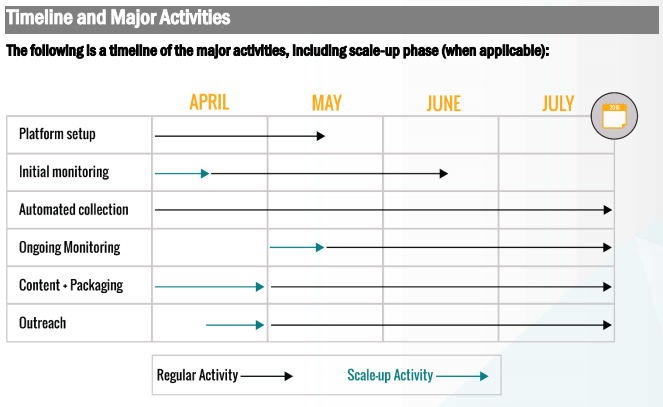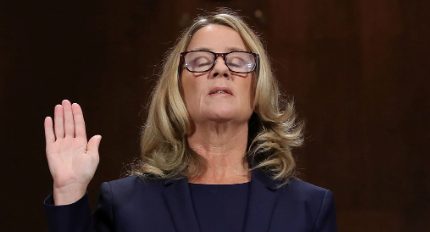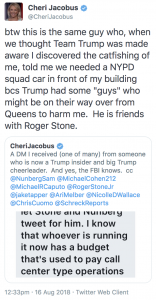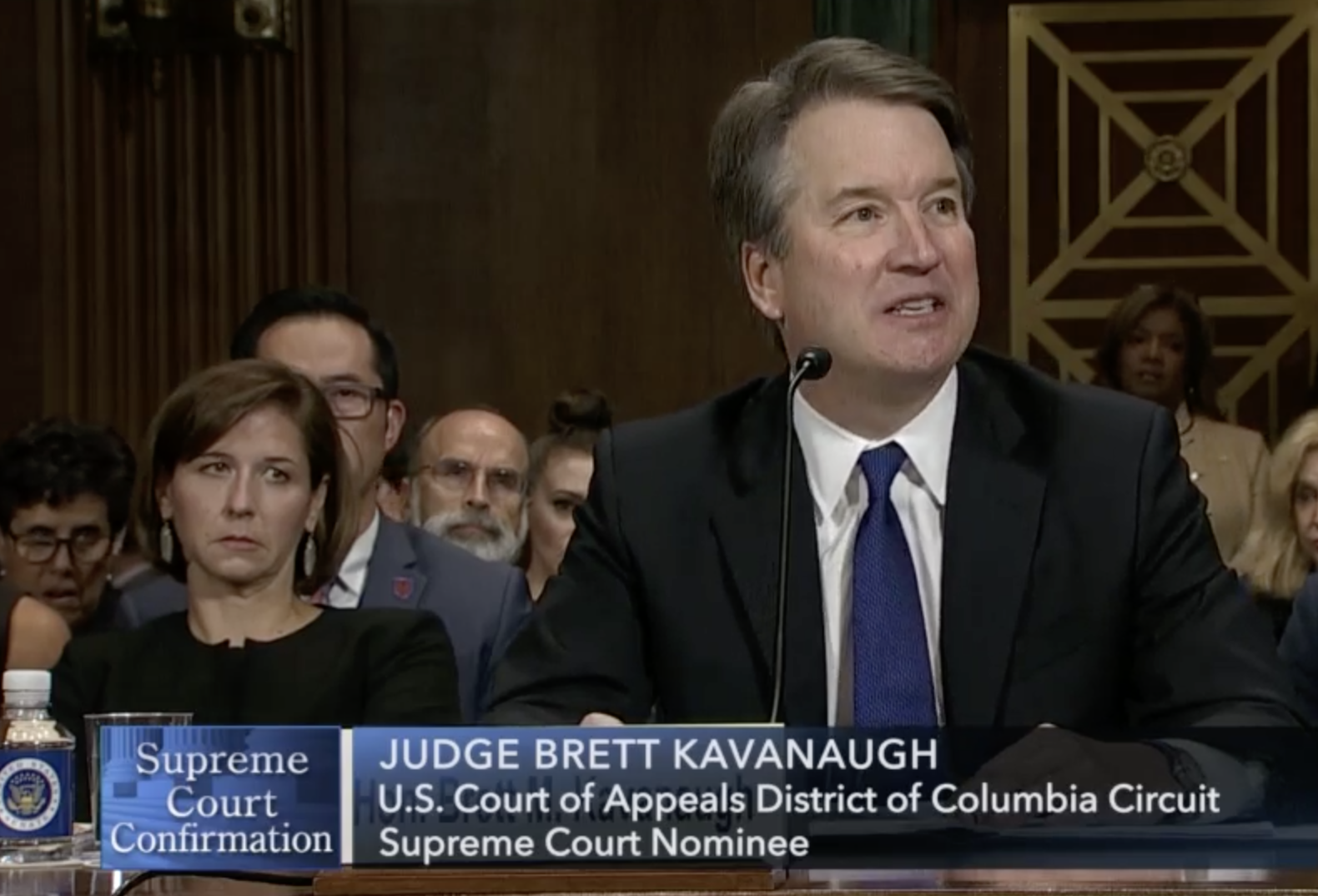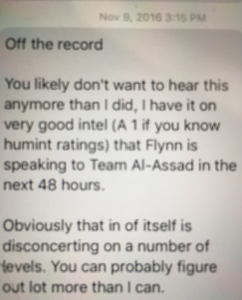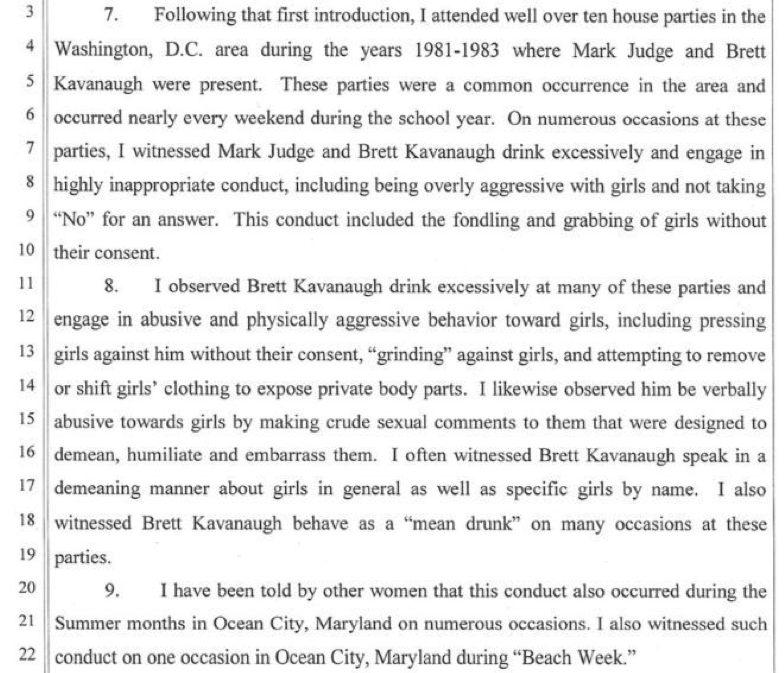Yesterday, DOJ indicted a bunch of GRU hackers again, in part for hacks in retaliation for anti-doping associations’ reports finding a state-run Russian effort to help its athletes cheat (though also including hacks of Westinghouse and the Organization for the Prohibition of Chemical Weapons (OPCW)).
As the DNC GRU indictment did, this indictment provides a snapshot of the division of labor in GRU, made easier by the capture of four of these guys, with all their hacking toys in the trunk of their rented car, in the Netherlands. I find a comparison of the two indictments — of some of the same people for similar activity spanning the same period of time — instructive for a number of reasons.
The team
Consider the team.
There are Aleksei Morenets and Evgenii Serebriakov, whom the indictment calls “on-site GRU hackers who traveled to foreign countries with other conspirators, in some instances using Russian government issued diplomatic passports to conduct on-site operations.” Serebriakov even has a title, “Deputy Head of Directorate,” which sounds like a pretty senior person to travel around sniffing WiFi networks.
There are the three men we met in the DNC indictment, Ivan Yermakov, Artem Malyshev, and Dmitriy Badin, all of whom work out of Moscow running hacks. Yermakov and Malyshev were closely involved in both hacks in 2016 (as demonstrated by the timeline below).
Finally, there are Oleg Sotnikov and Alexey Minin, who joined Morenets and Serebriakov as they tried to hack the Organization for the Prohibition of Chemical Weapons (OPCW) and tried to hack the Spiez Chemical laboratory that was analyzing the Novichok used to poison Sergei Skripal.
There are slightly different tactics than in the DNC hack. For example, GRU used a bunch of bit.ly links in this operation (though some of those are an earlier campaign against Westinghouse). And they sent out hackers to tap into targets’ WiFi networks directly, whereas none of the DNC hackers are alleged to have left Russia.
But there’s a ton of common activity, notably the spearphishing of targeted individuals and the use of their X-Agent hacking tool to exploit targeted machines.
Overlapping hack schedule
I’m also interested in the way the WADA hack, in particular, overlaps with the DNC one. I’ve got a timeline, below, of the two indictments look like (I’ve excluded both the Westinghouse and OPCW hacks from this timeline to focus on the overlapping 2016 operations).
Yermakov and Malyshev are described by name doing specific tasks in the DNC hack though May 2016. By August, they have turned to hacking anti-doping targets. Yermakov, in particular, seems to play the same research role in both hacks.
Given the impact of these operations, it’s fairly remarkable that such a small team conducted both.
Common bitcoin habits and possibly even infrastructure
There are also paragraphs in the WADA indictment, particularly those pertaining to the use of bitcoin to fund the operation used to substantiate the money laundering charge, that appear to be lifted in their entirety from the DNC one (or perhaps both come from DOJ or Western PA US Attorney boilerplate — remember that the DNC hack was originally investigated in Western PA, so this language likely originates there).
These include:
- 58/106: Describing how conspirators primarily used bitcoin to pay for infrastructure
- 59/107: Describing how bitcoin works, with examples specific to each operation provided
- 60/108: Describing how conspirators used dedicated email accounts to track bitcoin transactions
- 61/109: Describing how conspirators used the same computers to conduct hacking operations and facilitate bitcoin payments
- 62/110: Describing how conspirators also mined bitcoin and then used it to pay for servers, with examples specific to each operation
- 64/111: Describing how conspirators used the same funding structure and sometimes the same pool of funds to pay for hacking infrastructure, with examples specific to each operation provided
The similarity of these two passages suggests two things. First, it suggests that the August 8, 2016 transaction in the WADA indictment may have been orchestrated from the gfade147 email noted in the DNC indictment. With both, the indictment notes that “One of these dedicated accounts … received hundreds of bitcoin payment requests from approximately 100 different email accounts,” with the DNC indictment including the gfade147 address. (Compare paragraphs 60 in the DNC indictment with 108 in the WADA one.) That would suggest these two operations overlap even more than suspect.
That said, there’s one paragraph in the DNC indictment that doesn’t have an analogue in the WADA one, 63. It describes conspirators,
purchasing bitcoin through peer-to-peer exchanges, moving funds through other digital currencies, and using pre-paid cards. They also enlisted the assistance of one or more third-party exchangers who facilitated layered transactions through digital currency exchange platforms providing heightened anonymity.
Given how loud much of these operations were, it raises questions about why some of the DNC hack (but not, at least by description) the WADA one would require “heightened anonymity.”
Different treatment of InfoOps
I’m perhaps most interested in the different treatment of the InfoOps side of the operation. As I noted here, in general there seems to be a division of labor at GRU between the actual hackers, in Unit 26165, which is located at 20 Komsomolskiy Prospekt, and the information operations officers, in Unit 74455, which is located in the “Tower” at 22 Kirova Street, Khimki. Both units were involved in both operations.
Yet the WADA indictment does not name or charge any Unit 74455 officers, in spite of describing (in paragraphs 1 and 11) how the unit acquired and maintained online social media accounts and associated infrastructure (paragraph 76 describes that infrastructure to be “procured and managed, at least in part, by conspirators in GRU Unit 74455”). Five of the seven named defendants in the WADA indictment are in Unit 26165, with Oleg Sotnikov and Alexey Minin not identified by unit.
By comparison, three of the 11 officers charged in the DNC indictment belong to Unit 744555.
And the WADA campaign did have a significant media component, as explained in paragraphs 76-87. The indictment even complains (as did DOJ officials as the press conference announcing this indictment) about,
reporters press[ing] for and receiv[ing] promises of exclusivity in such reporting, with one such reporter attempting to make arrangements for a right of first refusal for articles on all future leaks and actively suggesting methods with whicch the conspiracy could search the stolen materials for documents of interest to that reporter (e.g., keywords of interest).
That said, the language in much of this discussion (see paragraphs 77 through 81) uses the passive voice — “were registered,” “were named,” “was posted,” “were released,” “were released,” “were released,” “were released” — showing less certainty about who was running that infrastructure.
That’s particularly interesting given that the government clearly had emails between the Fancy Bear personas and journalists.
One difference may be, in part, that in the DNC indictment, there are specific hacking (not InfoOps) actions attributed to two of the Unit 74455 officers: Aleksandr Osadchuk and Anatoliy Kovalev. Indeed, Kovalev seems to have been added on just for that charge, as he doesn’t appear in the introduction section at the beginning of the indictment.
Whereas Unit 74455’s role in the WADA indictment seems to be limited to running the InfoOps infrastructure.
Importance of WikiLeaks and sharing with Republicans
It’s not clear how much we can conclude form all that. But the different structure in the DNC indictment does allow it to foreground the role of a number of others, such as WikiLeaks and Roger Stone and — as I suggested drop in some or all of those others in a future conspiracy indictment — that were a key part of the election operation.
Timeline
February 1, 2016: gfade147 0.026043 bitcoin transaction
March 2016: Conspirators hack email accounts of volunteers and employees of Hillary campaign, including John Podesta
March 2016: Yermakov spearphishes two accounts that would be leaked to DC Leaks
March 14, 2016 through April 28, 2016: Conspirators use same pool of bitcoin to purchase VPN and lease server in Malaysia
March 15, 2016: Yermakov runs technical query for DNC IP configurations and searches for open source info on DNC network, Dem Party, and Hillary
March 19, 2016: Lukashev spearphish Podesta personal email using john356gh
March 21, 2016: Lukashev steals contents of Podesta’s email account, over 50,000 emails (he is named Victim 3 later in indictment)
March 25, 2016: Lukashev spearphishes Victims 1 (personal email) and 2 using john356gh; their emails later released on DCLeaks
March 28, 2016: Yermakov researched Victims 1 and 2 on social media
April 2016: Kozachek customizes X-Agent
April 2016: Conspirators hack into DCCC and DNC networks, plant X-Agent malware
April 2016: Conspirators plan release of materials stolen from Clinton Campaign, DCCC, and DNC
April 6, 2016: Conspirators create email for fake Clinton Campaign team member to spearphish Clinton campaign; DCCC Employee 1 clicks spearphish link
April 7, 2016: Yermakov runs technical query for DCCC’s internet protocol configurations
April 12, 2016: Conspirators use stolen credentials of DCCC employee to access network; Victim 4 DCCC email victimized
April 14, 2016: Conspirators use X-Agent keylog and screenshot functions to surveil DCCC Employee 1
April 15, 2016: Conspirators search hacked DCCC computer for “hillary,” “cruz,” “trump” and copied “Benghazi investigations” folder
April 15, 2016: Victim 5 DCCC email victimized
April 18, 2016: Conspirators hack into DNC through DCCC using credentials of DCCC employee with access to DNC server; Victim 6 DCCC email victimized
April 19, 2016: Kozachek, Yershov, and co-conspirators remotely configure middle server
April 19, 2016: Conspirators register dcleaks using operational email [email protected]
April 20, 2016: Conspirators direct X-Agent malware on DCCC computers to connect to middle server
April 22, 2016: Conspirators use X-Agent keylog and screenshot function to surveil DCCC Employee 2
April 22, 2016: Conspirators compress oppo research for exfil to server in Illinois
April 26, 2016: George Papadopolous learns Russians are offering election assistance in the form of leaked emails
April 28, 2016: Conspirators use bitcoin associated with Guccifer 2.0 VPN to lease Malaysian server hosting dcleaks.com
April 28, 2016: Conspirators test IL server
May 2016: Yermakov hacks DNC server
May 10, 2016: Victim 7 DNC email victimized
May 13, 2016: Conspirators delete logs from DNC computer
May 25 through June 1, 2016: Conspirators hack DNC Microsoft Exchange Server; Yermakov researches PowerShell commands related to accessing it
May 30, 2016: Malyshev upgrades the AMS (AZ) server, which receives updates from 13 DCCC and DNC computers
May 31, 2016: Yermakov researches Crowdstrike and X-Agent and X-Tunnel malware
June 2016: Conspirators staged and released tens of thousands of stolen emails and documents
June 1, 2016: Conspirators attempt to delete presence on DCCC using CCleaner
June 2, 2016: Victim 2 personal victimized
June 8, 2016: Conspirators launch dcleaks.com, dcleaks Facebook account using Alive Donovan, Jason Scott, and Richard Gingrey IDs, and @dcleaks_ Twitter account, using same computer used for other
June 9, 2016: Don Jr, Paul Manafort, Jared Kushner have meeting expecting dirt from Russians, including Aras Agalarov employee Ike Kaveladze
June 10, 2016: Ike Kaveladze has calls with Russia and NY while still in NYC
June 14, 2016: Conspirators register actblues and redirect DCCC website to actblues
June 14, 2016: WaPo (before noon ET) and Crowdstrike announces DNC hack
June 15, 2016, between 4:19PM and 4:56 PM Moscow Standard Time (9:19 and 9:56 AM ET): Conspirators log into Moscow-based sever and search for words that would end up in first Guccifer 2.0 post, including “some hundred sheets,” “illuminati,” “think twice about company’s competence,” “worldwide known”
June 15, 2016, 7:02PM MST (12:02PM ET): Guccifer 2.0 posts first post
June 15 and 16, 2016: Ike Kaveladze places roaming calls from Russia, the only ones he places during the extended trip
June 20, 2016: Conspirators delete logs from AMS panel, including login history, attempt to reaccess DCCC using stolen credentials
June 22, 2016: Wikileaks sends a private message to Guccifer 2.0 to “send any new material here for us to review and it will have a much higher impact than what you are doing.”
June 27, 2016: Conspirators contact US reporter, send report password to access nonpublic portion of dcleaks
Late June, 2016: Failed attempts to transfer data to Wikileaks
July, 2016: Kovalev hacks into IL State Board of Elections and steals information on 500,000 voters
July 6, 2016: Conspirators use VPN to log into Guccifer 2.0 account
July 6, 2016: Wikileaks writes Guccifer 2.0 adding, “if you have anything hillary related we want it in the next tweo [sic] days prefabl [sic] because the DNC [Democratic National Convention] is approaching and she will solidify bernie supporters behind her after”
July 6, 2016: Victim 8 personal email victimized
July 10-19: Morenets travels to Rio de Janeiro
July 14, 2016: Conspirators send WikiLeaks an email with attachment titled wk dnc link1.txt.gpg providing instructions on how to access online archive of stolen DNC documents
July 18, 2016: WikiLeaks confirms it has “the 1Gb or so archive” and would make a release of stolen documents “this week”
July 22, 2016: WikiLeaks releases first dump of 20,000 emails
July 27, 2016: Trump asks Russia for Hillary emails
July 27, 2016: After hours, conspirators attempt to spearphish email accounts at a domain hosted by third party provider and used by Hillary’s personal office, as well as 76 email addresses at Clinton Campaign
August 2016: Kovalev hacks into VR systems
August 2-9, 2016: Conspirators use multiple IP addresses to connect to or scan WADA’s network
August 2-4, 2016: Yermakov researches WADA and its ADAM database (which includes the drug test results of the world’s athletes) and USADA
August 3, 2016: Conspirators register wada.awa.org
August 5, 9, 2016: Yermakov researches Cisco firewalls, he and Malyshev send specific WADA employees spearfish
August 8, 2016: Conspirators register wada-arna.org and tas-cass.org
August 8, 2016: .012684 bitcoin transaction directed by dedicated email account
August 13-19, 2016: Morenets and Serebriakov travel to Rio, while Yermakov supports with research in Moscow
August 14-18, 2016: SQL attacks against USADA
August 15, 2016: Conspirators receive request for stolen documents from candidate for US congress
August 15, 2016: First Guccifer 2.0 exchange with Roger Stone noted
August 19, 2016: Serebriakov compromises a specific anti-doping official and obtains credentials to access ADAM database
August 22, 2016: Conspirators transfer 2.5 GB of stolen DCCC data to registered FL state lobbyist Aaron Nevins
August 22, 2016: Conspirators send Lee Stranahan Black Lives Matter document
September 1, 2016: Domains fancybear.org and fancybear.net registered
September 6, 2016: Conspirators compromise credentials of USADA Board member while in Rio
September 7-14, 2016: Conspirators try, but fail, to use credentials stolen from USADA board member to access USADA systems
September 12, 2016: Data stolen from WADA and ADAMS first posted, initially focusing on US athletes
September 12, 2016 to January 17, 2018: Conspirators attempt to draw media attention to leaks via social media
September 18, 2016: Morenets and Serebriakov travel to Lausanne, staying in anti-doping hotels, to compromise hotel WiFi
September 19, 2016 to July 20, 2018: Conspirators attempt to draw media attention to leaks via email
September 2016: Conspirators access DNC computers hosted on cloud service, creating backups of analytics applications
October 2016: Linux version of X-Agent remains on DNC network
October 6, 2016: Emails stolen from USADA first released
October 7, 2016: WikiLeaks releases first set of Podesta emails
October 28, 2016: Kovalev visits counties in GA, IA, and FL to identify vulnerabilities
November 2016: Kovalev uses VR Systems email address to phish FL officials
December 6, 2016 – January 2, 2017: Using IP frequently used by Malyshev, conspirators compromise FIFA’s anti-doping files
December 13, 2016: Data stolen from CCES released
January 19-24, 2017: Conspirators compromise computers of four IAAF officials
June 22, 2017: Data stolen from IAAF’s network released
July 5, 2017: Data stolen from IAAF’s network released
August 28, 2017: Data stolen from FIFA released
As I said in July, I provided information to the FBI on issues related to the Mueller investigation, so I’m going to include disclosure statements on Mueller investigation posts from here on out. I will include the disclosure whether or not the stuff I shared with the FBI pertains to the subject of the post.


